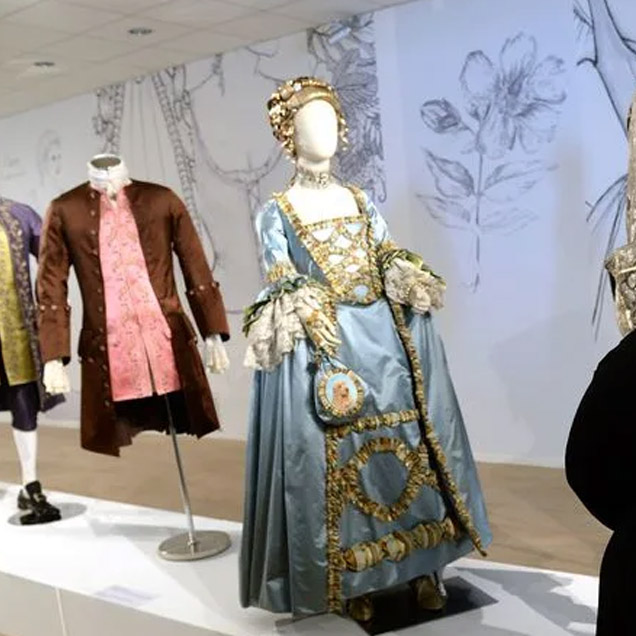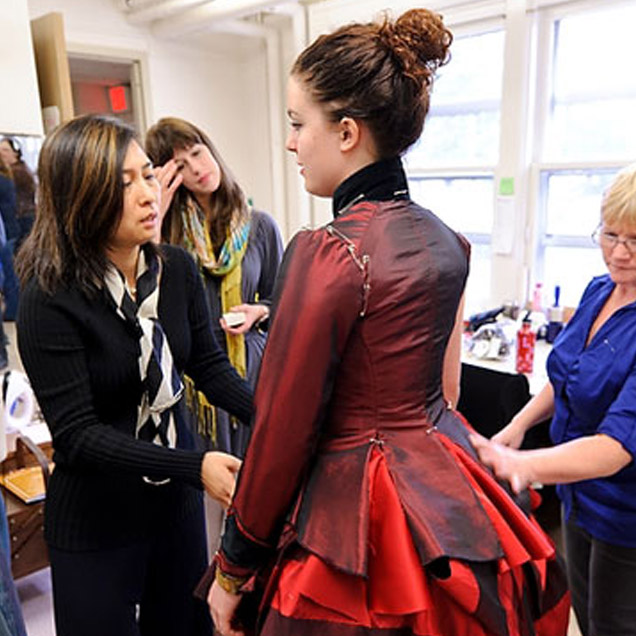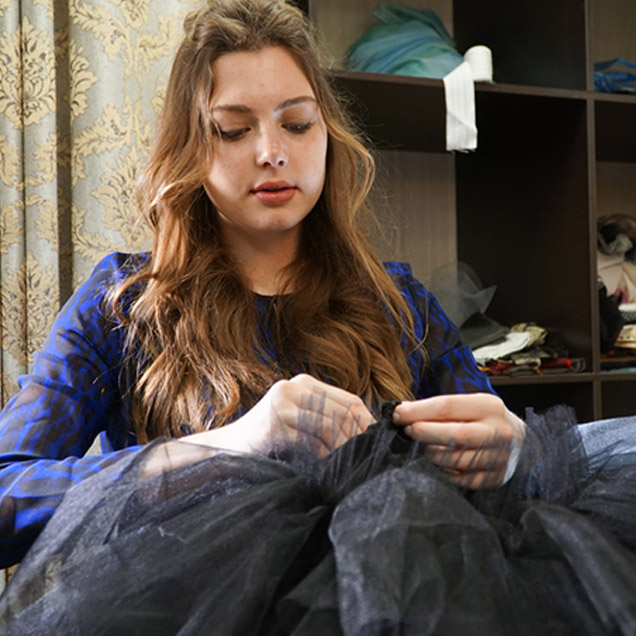Costume Designing
A costume designer is a person who designs costumes for a film, stage production or television. The role of the costume designer is to create the characters’ outfits/costumes and balance the scenes with texture and colour, etc.The costume designer works alongside the director, scenic, lighting designer, sound designer, and other creative personnel. The costume designer may also collaborate with hair stylist, wig master, or makeup artist. In European theatre, the role is different, as the theatre designer usually designs both costume and scenic elements.
Designers typically seek to enhance a character’s personality, and to create an evolving plot of colour, changing social status, or period through the visual design of garments and accessories. They may distort or enhance the body—within the boundaries of the director’s vision. The designer must ensure that the designs let the actor move as the role requires. The actor must execute the director’s blocking of the production without damaging the garments. Garments must be durable and washable, especially for plays with extended runs or films with near-real time pacing (meaning that most costumes will not change between scenes) but whose principal photography phase may stretch across several weeks. The designer must consult not only with the director, but the set and lighting designers to ensure that all elements of the overall production design work together. The designer must possess strong artistic capabilities and a thorough knowledge of pattern development, draping, drafting, textiles and fashion history. The designer must understand historical costuming, and the movement style and poise that period dress may require.



